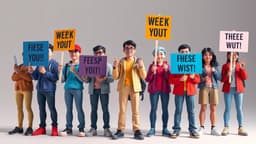Home / Education / Screens Overtake Books: A Concerning Trend in Children's Reading Habits
Screens Overtake Books: A Concerning Trend in Children's Reading Habits
15 Nov
Summary
- 31% of 13-year-olds "never or hardly ever" read for fun in 2023
- Pandemic disrupted foundational literacy instruction, leading to 10 weeks less learning in reading
- Shift toward phonics-heavy instruction reduces focus on reading comprehension

According to a recent report, the reading habits of children have taken a concerning turn. In 2023, 31% of 13-year-olds stated they "never or hardly ever" read for fun, a significant increase from the 29% reported in 2020 and the 8% in 1984. This trend is not limited to a specific region, as it has been observed across the United States.
The COVID-19 pandemic played a significant role in accelerating this decline. The disruptions to foundational literacy instruction during the 2019-2020 academic year, including inconsistent learning approaches and limited access to technology for many families, resulted in students returning to school with approximately 10 weeks less learning in reading compared to a typical year.
Furthermore, the shift in educational methods over the past 25 years has also contributed to the problem. The increased focus on phonics-heavy instruction, while beneficial for helping children learn to decode, has come at the expense of reading comprehension and the joy of reading. This approach has led to students becoming proficient decoders without developing the critical thinking and comprehension skills necessary for true literacy.
Experts warn that without substantial reading skills, future generations may struggle to think as deeply and with as much complexity as in the past. The challenge lies in striking the right balance between phonics instruction and opportunities for students to engage with complex texts, discuss ideas, and develop a love for reading.




